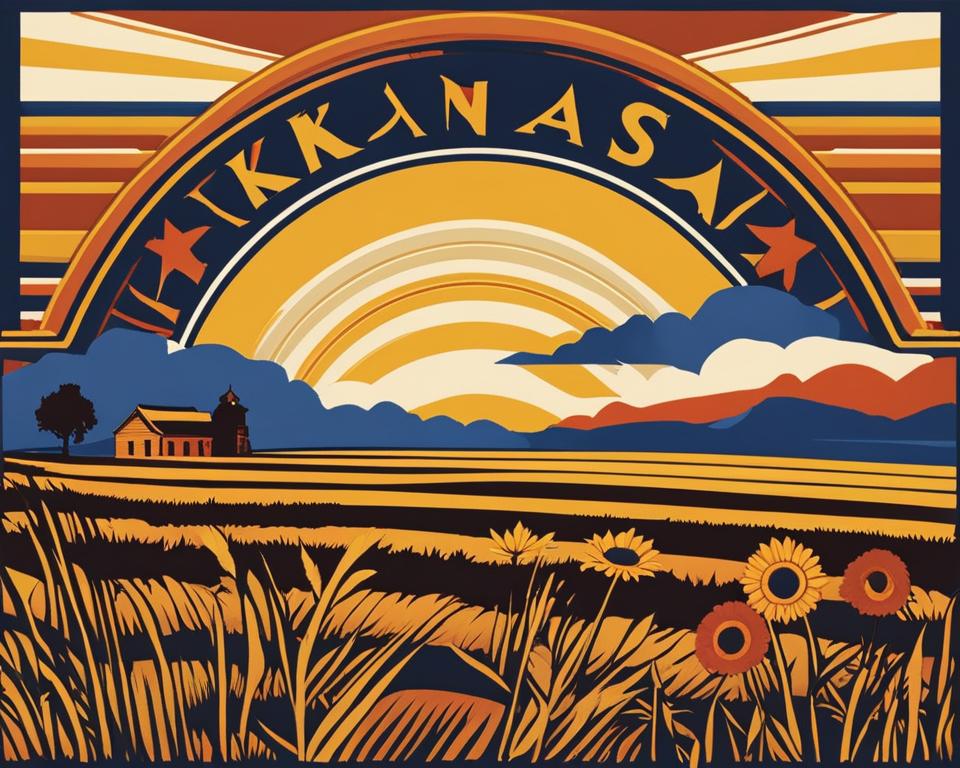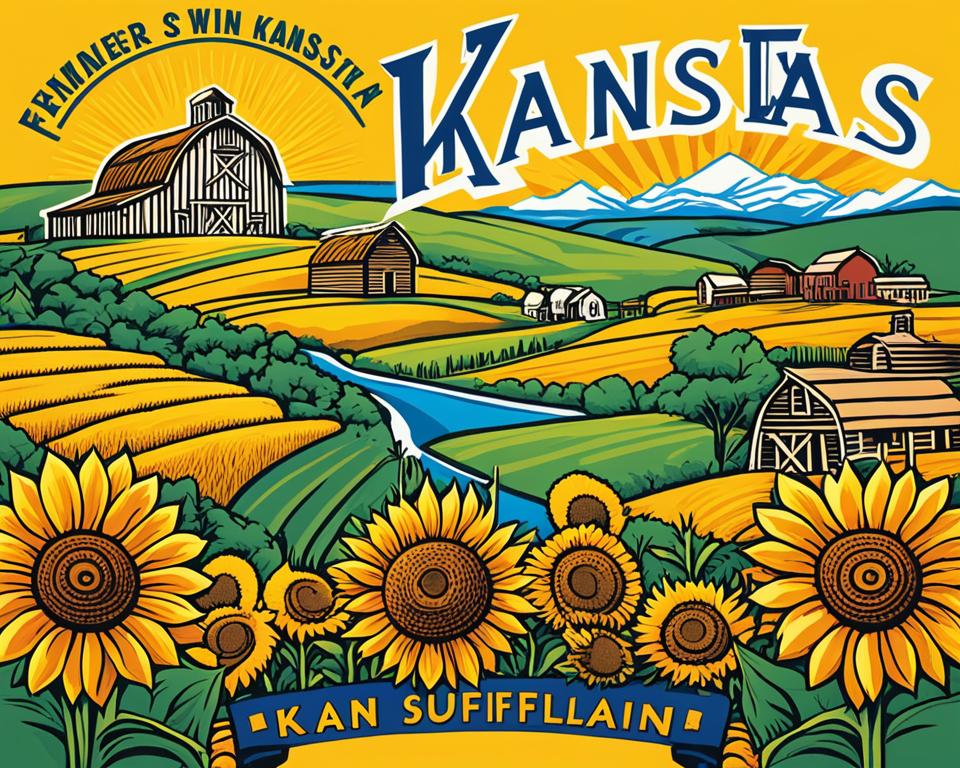Kansas Day is an annual celebration held on January 29th to mark the day in 1861 when Kansas became the 34th state admitted to the United States. This holiday recognizes the history and contributions of the state of Kansas. Kansas Day events across the state honour the region’s culture and heritage.
Key Events Leading to Kansas Statehood
Several key events occurred on the path to Kansas joining the Union as a free state. This table summarizes milestone moments:
| Year | Event | Significance |
|---|---|---|
| 1854 | Kansas-Nebraska Act Passed | Allowed white male settlers in Kansas and Nebraska territories to determine if slavery would be allowed. |
| 1855 | Topeka Constitutional Convention Held | Border ruffians crossed into Kansas to stuff ballot boxes and install a pro-slavery territorial legislature. |
| 1856 | Pro-slavery Missourians Influence Elections | Border ruffians crossed into Kansas to stuff ballot boxes and install pro-slavery territorial legislature. |
| 1858 | Fraudulent Pro-Slavery Lecompton Constitution Drafted | Anti-slavery settlers wrote a state constitution seeking Kansas’s admission to the Union as a free state. |
| 1859 | Wyandotte Constitution Approved | Ensured Kansas would become a free-state banning slavery upon statehood. |
| 1861 | Kansas Admitted as 34th State | A vote was manipulated by slavery supporters, so the constitution was later overturned. |
The History Behind Kansas Day

Learning the complex history leading up to 1861 helps show why Kansans celebrate statehood.
Bleeding Kansas Era
The 1854 Kansas-Nebraska Act turned Kansas into a battleground over slavery. It said settlers there could decide whether to allow slavery. Pro- and anti-slavery groups flooded into the territory to try to establish a voting majority around the issue. From 1855-1858 violent skirmishes broke out between the two sides, earning the name “Bleeding Kansas.”
Pursuing Statehood and a Free State
To find stability, anti-slavery Kansans accelerated efforts to join the Union, specifically as a free state banning slavery. They believed statehood would protect citizens. An October 1855 convention wrote the first free state constitution. Finally, in 1859, the Wyandotte Constitution prohibited slavery, preparing the way for Kansas to apply for statehood without slavery.
Achieving Statehood
On January 29, 1861, Kansas officially entered the Union as the 34th free state after six turbulent years as a territory. A Republican majority in Congress voted to admit Kansas before pro-slavery states seceded. Statehood was critical progress after Bleeding Kansas and securing Kansas as free.
How Old is Kansas
As Kansas marks 163 years of statehood in 2024, the state has only continued to grow in significance. What started as a largely unsettled frontier territory with less than 100,000 citizens now boasts a population of over 2.9 million residents. It has developed major industries in aviation, agriculture and technology alongside diverse lively cities. So Kansas Day honors the longevity and expansion Kansas has achieved over its full life since earning coveted statehood back in 1861.
Why Kansas Day Recognizes Statehood
Kansas Day serves as an important reminder of key aspects of Kansas’s formative history and honours the movement that led to statehood without slavery.
Remembers the Free State Movement
The holiday recognizes January 29, 1861, as the victory of the Free State Movement following the Bleeding Kansas clashes. Though violent conflict delayed statehood for Kansas, it entered the Union as a free state because of early anti-slavery settlers’ efforts.
Honours Important Figures
Kansas Day also commemorates activists vital to abolishing slavery locally and achieving statehood like John Brown, James H. Lane and Charles L. Robinson. The holiday provides an opportunity to highlight their contributions.
Celebrates Aspects of Kansas Culture
Beyond politics, Kansas Day celebrations showcase winter wheat harvests, cowboys, and other cultural touchstones as well as innovations tied to the state like Amelia Earhart and Dwight Eisenhower. This spotlights the hallmarks of Kansas’ economic development and iconic imagery.
Promotes State Unity
By promoting shared history and values from Kansas’s founding struggles, Kansas Day can increase unity and collective identity among citizens during divided times. It inspires state patriotism and future optimism as Kansans reflect on the ability to overcome past challenges.
Kansas Day Commemorations and Traditions
Various events statewide around January 29th commemorate Kansas history and statehood locally.
Government Acknowledgments
Official holiday observances occur on January 29 or the nearest weekday. For example, schools and non-emergency state offices close, while government leaders issue commemorative statements.
Historical Reenactments
Reenactments educate about key statehood events. Local Kansas Day parades feature historical performances about abolitionists, governors or constitutional conventions. Tableaus depict pivotal moments on the path to 1861.
Community Festivals
Cities and organizations host fairs featuring local businesses, foods, arts and crafts. Occasions include music, dancing, and entertainment spotlighting famous Kansans and prominent moments in state history.
School Activities in Kansas
Students learn about Kansas statehood and culture through creative writing, art projects, historical figure research and field trips to Works Progress Administration landmarks. These teach heritage.
Kansas Day Affirms the Importance of Statehood
By commemorating Kansas’s early struggles, iconic symbols and eventual 1861 statehood victory, this holiday nurtures continued prosperity grounded in the visionary tenacity of those who built this community. Kansas Day inspires reflection on formative stories and influential figures. It reminds Kansans what makes their state special – the ability to overcome challenges through shared hope and values.
Conclusion
Kansas Day recognizes the turbulent road to Kansas becoming the 34th free state on January 29, 1861, after violent Bleeding Kansas conflicts. Commemorations promote Kansas heritage and culture today with unity events spotlighting key statehood figures. The holiday upholds the legacy of those who secured abolition and statehood locally – progress Kansans still benefit from. Kansas Day events build connections to this pivotal history.
